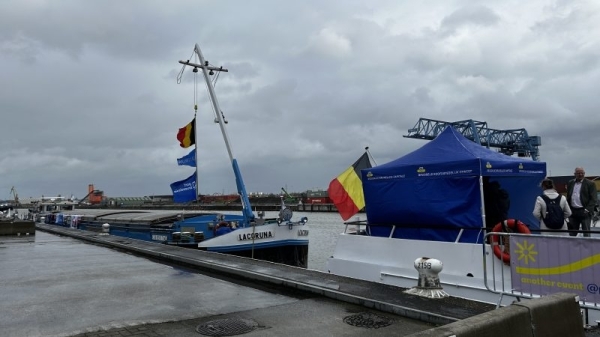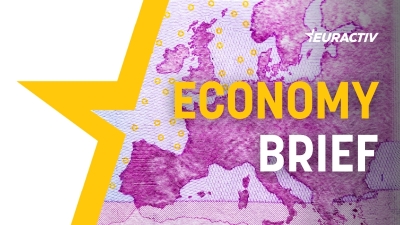Safety concerns hold back adoption of unmanned water vessels

Europe’s inland waterways are not ready for remote-controlled or autonomous vessels, according to inland navigation stakeholders who spoke to Euractiv at the Connecting Europe Days transportation conference in Brussels on April 2.
Shipping services company SEAFAR presented its technology allowing remote and automated control of vessels traversing Europe’s rivers and locks. Industry stakeholders were cautiously receptive to this relatively new technology.
“We are not that far yet,” said Manfred Seitz, director-general of the Danube Commission, an international intergovernmental organisation, cautioning against expectations of an imminent mass up-take of remote and autonomously-controlled vessels.
The technology is intended, in part, to address a shortage of skippers, the crew members who oversee vessel operations. According to SEAFAR CEO Louis-Robert Cool, Flanders is on track to be short 6,000 skippers by 2030 in the inland shipping sector, while the Netherlands will need 20,000 – 25,000 skippers.
Cool said that allowing unmanned vessels on Europe’s inland waterways would align with the goals of the Green Deal because boats are greener modes of transportation than cars and trucks, and automated shipping would allow for increased capacity, even if the skipper shortage is not resolved.
Safety concerns
Stakeholders expressed concerns about the safety implications of unmanned navigation.
Jan Bukovský from the Czech Waterways Directorate said the Czech Republic has no experience with unmanned inland waterway vessels thus far and that “further investigation is important and necessary” before Czech officials endorse a widespread uptake.
Bukovský expressed concern over Russian hackers gaining access to the software of unmanned vessels’ and ‘spoofing’ their GPS positions, so shore-based operators cannot tell where the ship is, or where it is going. Hijacking the software could also allow aggressors to control the ships’ movements or shut down ships.
Cool pointed out there have been no hacking incidents to date and SEAFAR has a cybersecurity unit, though acknowledging that he is “always” worried about interference from actors like Russia.
Glitches
With new technologies also comes the risk of glitches. The CEO accepted that “minor happenings” have occurred involving ships using SEAFAR’s technologies, but stressed these were not crashes.
He pointed out that SEAFAR’s safety procedures prevented many incidents from being serious, “Everyone knows what to do when something goes wrong,” said Cool.
Regulatory reluctance
As a result of safety concerns and other unknowns concerning remote and AI-controlled navigation, lawmakers are yet to establish the regulatory frameworks that would allow unmanned vessels onto waterways.
Seitz said that whatever regulatory framework lawmakers come up with, will need to include cyber provisions to guard against vessel interference.
Cool said he wants to see a general framework between those countries willing to provide derogations to allow unmanned vessels to traverse waterways.
However, he acknowledged that asking for a European-wide framework would be overly ambitious at this point.
A European Commission policy analyst said the Commission’s concerns for unmanned waterway vessels, are the same as their concerns regarding unmanned cars.
The Commission’s 2021 strategy to boost the role of inland waterways described autonomous vessels as being at an early stage “due to both technical and regulatory challenges.” However, they were committed to supporting the development of the technology with research funding.
Though governments remain wary of allowing unmanned vessels on inland waterways en mass, Cool pointed out unmanned vessels have navigated waters alongside manned counterparts for three or four years in the Belgian region of Flanders.
“Remote control vessels are part of business as usual in parts where they are operating,” said Cool. “But remote control navigation is still a niche overall.”
“It’s important we find a way where we can implement this technology with existing vessels,” he added.
Despite his reservations, Seitz believes unmanned vessels cannot be avoided forever. “We will see unmanned vessels in the future on various sections of European waterway networks,” he said.
Read more with Euractiv




